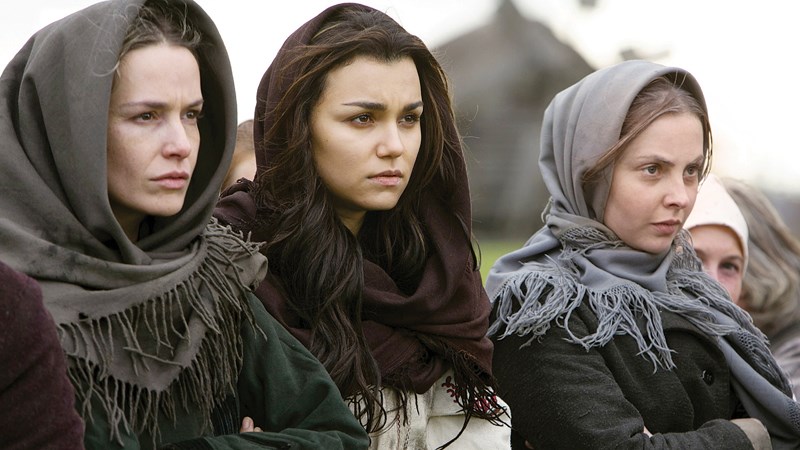Bitter Harvest. Directed and produced by George Mendeluk. Starring Max Irons, Samantha Barks, Terrence Stamp and Barry Pepper. Rating: 5 (out of 10)
Canada was the dream of Ukrainian farmers oppressed and starved within the borders of their own homeland by the Russians. But in the 1930s, few got the chance to make the journey.
The true and seldom-acknowledged forced starvation of millions in “the breadbasket of Europe” is the subject of Bitter Harvest, from prolific television director George Mendeluk.
At the centre of the narrative is Yuri (Max Irons), the son of a soldier (Barry Pepper, bald save for an impressive forelock) and the grandson of a great warrior (played by Terrence Stamp). “My Ukraine was a world where legends lived, and anything was possible,” says Yuri, somewhat optimistically during the brief years of peace in between the crushing reigns of Stalin and Lenin.
Ukraine was essential to Russia because of its rich mineral deposits and agricultural wealth, necessary to feed the workers in Moscow who were rushing to modernize the nation and catch up with the West. The seizure of church relics and property not spoils enough, the Russians moved on to commandeer farms and over 90 per cent of the harvest, closing the borders and guaranteeing that the entire Ukraine would starve: “Who will notice?” an overweening Stalin (Gary Oliver) says.
Yuri prefers the paintbrush to the sabre; he leaves the family farm – and childhood sweetheart Natalka (Samantha Barks, Les Miserables) – for art school in Kiev, where his meagre wages from the city will keep people in his village from starving. But times, and art, are changing: one professor tells Yuri that his art is not brave and expressive enough, while a hasty replacement tells him that his paintings must now reflect socialist Soviet unity.
In the capital Yuri falls in with Mykola (Aneurin Barnard), a Ukrainian patriot, and gets swept up and imprisoned during a crackdown of anti-Bolsheviks. A despondent Yuri repeats his father’s refrain “no one can ever take away your freedom,” while his rebel friends are lined up and shot daily in the prison courtyard.
All the while a wicked commissar (Tammer Hassan) bloodies the peasants back home and is always on the verge of making Natalka “dishonor the family” by becoming his plaything.
The film is most effective when the camera slows to focus on details: the image of a little boy lying on his mother’s grave or a peasant woman being forced to dry a Russian soldier’s feet with her hair. Unfortunately, choppy editing results in conversations and scenes that end abruptly, leaving more questions for the viewer than answers. Heavy-handed music does nothing to complement the frequently clunky exposition.
And Irons, our decidedly un-Slavic looking hero, seems to sleepwalk through it all, navigating the growing piles of emaciated corpses with barely an extra blink.
The Holodomor, as the mass starvation became known, is an important historical event. At the height of the forced famine, Ukrainians died at a rate of 30,000 per day and well over 4 million died of starvation alone in 1932-33, while others were executed or deported. The director has Ukrainian roots and good intentions, but the victims aren’t given their due, reduced to a footnote before the end credits.



